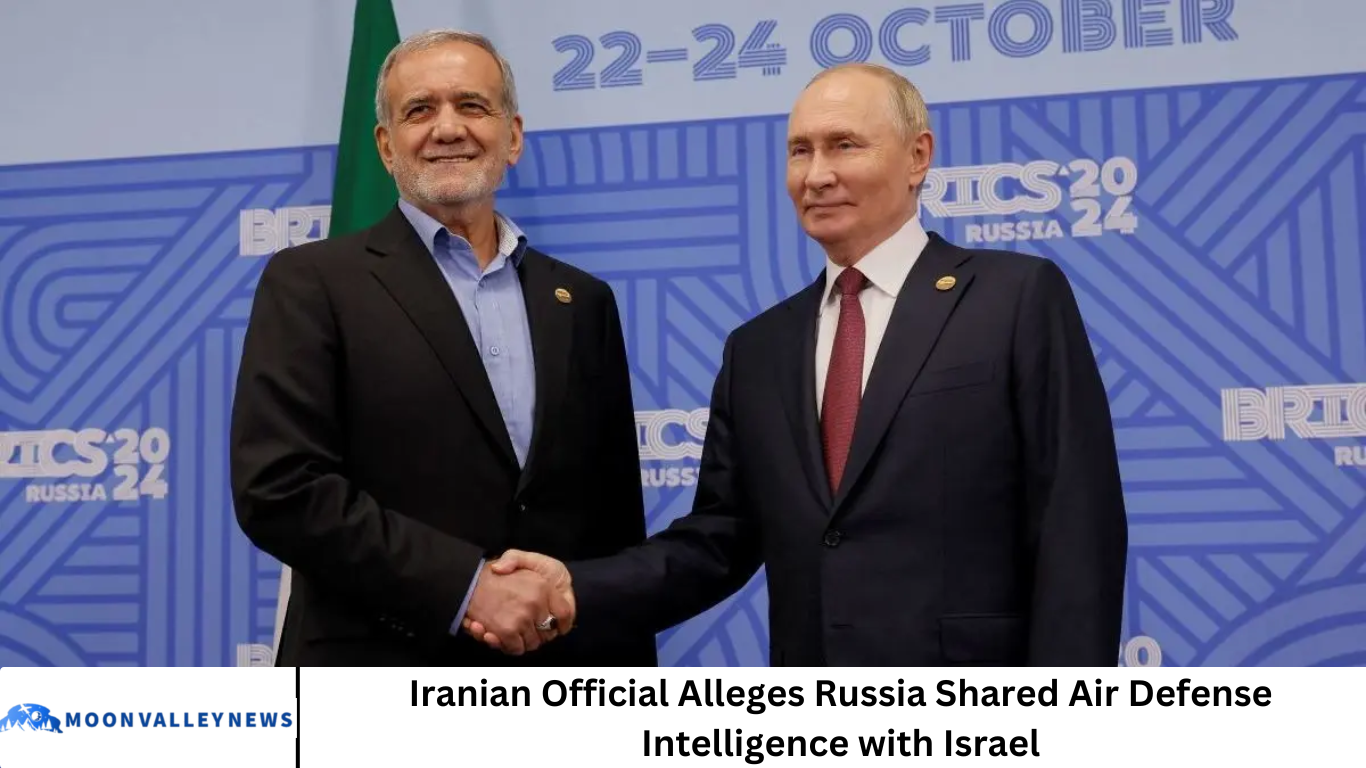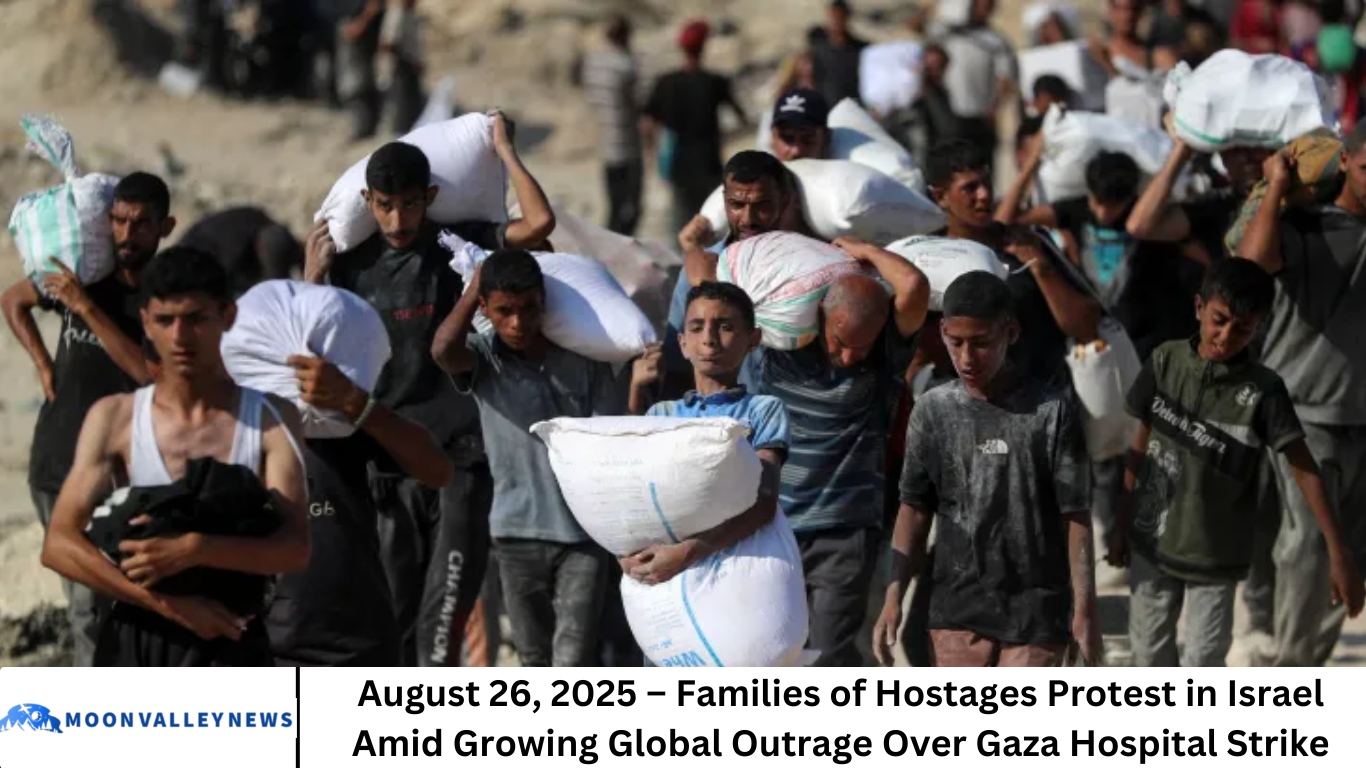In a surprising and unprecedented move, a senior Iranian official has publicly accused Russia of compromising Iran’s national security by allegedly providing sensitive air defense intelligence to Israel.
The allegation, made by Mohammad Sadr, a member of Iran’s Expediency Discernment Council, has stirred international concern and speculation about the stability of the Iran-Russia strategic partnership—particularly in the context of the recent military conflict between Iran and Israel.
The claim, if substantiated, could have far-reaching consequences for the geopolitical dynamics of the Middle East and beyond, especially considering the delicate balance of power among Iran, Russia, Israel, and Western countries.
More Read: New Flood Warnings Issued in Punjab as Monsoon Death Toll Approaches 800 Nationwide
Who Is Mohammad Sadr?
Mohammad Sadr is not a fringe figure in Iranian politics. He is a senior member of the Expediency Discernment Council, an influential body tasked with resolving disputes between the Iranian parliament and the Guardian Council. He is also a former deputy foreign minister and is known for his expertise in foreign affairs and international diplomacy.
His remarks carry significant weight, especially given the council’s proximity to Iran’s Supreme Leader, Ayatollah Ali Khamenei. Sadr’s public statements suggest a possible shift or at least growing skepticism within Iran’s political elite regarding its alliance with Russia.
The Allegation: What Was Said?
During a press interview on Sunday evening, Sadr stated:
“Russia provided Israel with information about Iran’s air defense sites.”
He further added:
“This war proved the strategic alliance with Moscow is worthless,”
These comments refer directly to the 12-day war between Iran and Israel in June 2025, which saw escalated airstrikes, cyber attacks, and military confrontations. Iran believes that the precision and success of Israeli strikes may have been aided by inside intelligence—allegedly from Russia.
The June 2025 Iran-Israel Conflict: A Brief Overview
The 12-day conflict in June 2025 marked one of the most intense confrontations between Iran and Israel in recent years. The escalation began after a suspected Israeli cyberattack disrupted Iranian military systems, followed by retaliatory drone and missile strikes by Iran.
In response, Israel launched a series of targeted airstrikes on Iranian missile depots, radar installations, and air defense systems within Iran and Syria. Many observers noted the accuracy and efficiency of Israeli attacks, sparking speculation about the source of their intelligence.
Now, with Sadr’s allegations, a new narrative is emerging—one that implicates Russia in possibly tipping the scales in Israel’s favor.
Why Would Russia Help Israel?
At first glance, Russia siding with Israel against Iran seems counterintuitive. Iran and Russia have deepened military and economic cooperation in recent years, especially in Syria, where they have jointly supported the Assad regime. However, Russia’s foreign policy has always prioritized strategic flexibility over ideological loyalty.
Here are several possible motivations or explanations for Russia’s alleged behavior:
1. Strategic Realignment
Russia may be seeking to rebalance its regional ties as its global isolation grows amid continued conflict in Ukraine and increasing economic sanctions. Establishing closer ties with Israel, a technologically advanced and Western-aligned country, could serve Russian interests in intelligence, technology, and diplomacy.
2. Tactical Diplomacy
Russia has often played both sides in Middle Eastern conflicts. It has good relations with Israel, particularly with Israeli Prime Minister Benjamin Netanyahu, who has visited Moscow multiple times. Israel and Russia have long maintained a deconfliction mechanism in Syria to avoid direct clashes between their air forces.
3. Preventing Iranian Dominance
Russia may not want Iran to gain too much influence in Syria or the broader region. A strong Iran could challenge Russian interests, especially if it begins acting unilaterally. By undermining Iran subtly, Russia can maintain leverage over Tehran while preserving its role as a regional power broker.
How Might Israel Have Benefited?
If the allegation is true, Israeli intelligence could have received valuable information on:
- Locations of radar systems
- Weak points in Iran’s integrated air defense network
- Command and control centers
- Movements of mobile missile platforms
Such intelligence would dramatically increase the precision and success rate of Israeli airstrikes, possibly explaining the efficiency of their June 2025 campaign. It could also help Israeli cyber units in penetrating Iran’s defense systems more effectively.
Iran-Russia Relations: A Complicated History
Iran and Russia have historically shared a relationship of convenience rather than true strategic alliance. While both countries oppose U.S. influence in the region, their goals often diverge.
Key Points in Their Relationship:
- Syria Cooperation: Iran and Russia have coordinated in Syria but have also competed for influence there.
- Arms Deals: Russia has sold advanced weapons to Iran, including the S-300 air defense system, but has also delayed or canceled deliveries under Western pressure in the past.
- Energy Competition: Both countries are major oil and gas exporters, often competing in global markets.
The trust deficit between the two has existed for years. Sadr’s allegations may have simply brought this to the surface.
International Reactions
Western Countries
The U.S. and EU have yet to officially respond to the allegations, but analysts suggest that Western governments are watching the situation closely. A rift between Iran and Russia could:
- Weaken the anti-Western bloc in the Middle East
- Open opportunities for diplomatic maneuvering
- Reduce Iran’s leverage in nuclear negotiations
Israel
Israel has remained silent on the issue, as is customary in intelligence-related matters. However, Israeli media have widely covered Sadr’s claims, often framing them as a vindication of Israel’s intelligence superiority.
Russia
As of now, the Russian government has not issued a formal denial or response. Moscow may choose to downplay or ignore the allegation to avoid escalating tensions or admitting any backroom dealings.
Implications for Regional Geopolitics
1. Iran May Rethink Its Alliances
Sadr’s comments could signal internal pressure in Iran to diversify its strategic partnerships, possibly warming up to countries like China or Turkey while distancing itself from Russia.
2. Russia Risks Losing a Strategic Partner
If Iran cools its ties with Moscow, Russia could lose a key ally in its Middle East ambitions. This would particularly hurt Russian interests in Syria and the Persian Gulf.
3. Increased Regional Volatility
A breakdown in Iran-Russia relations could destabilize existing military arrangements, especially in Syria. Militias, proxies, and even government forces could realign in unpredictable ways.
Domestic Reaction in Iran
Iranian public opinion on Russia is mixed. While many see Russia as a necessary counterweight to the U.S., others view it as an opportunistic actor that has historically betrayed Iranian interests. Sadr’s remarks may resonate with nationalist voices within Iran who advocate for a more independent foreign policy.
There is also speculation that internal factions within Iran’s power structure may be using the incident to push back against the pro-Russian stance of the Raisi administration or even the Supreme Leader’s advisors.
Could the Allegations Be a Strategic Message?
Some analysts suggest that the public airing of such a serious accusation could be a calculated move by Tehran to:
- Pressure Moscow to reaffirm its loyalty
- Signal dissatisfaction with current levels of cooperation
- Shift blame for military failures onto external actors
If so, the allegation serves as both a domestic political tool and a foreign policy signal.
The Bigger Picture: Realignment in the Middle East?
The Middle East is undergoing rapid realignments:
- The Abraham Accords brought Israel closer to Arab states
- Iran-Saudi Arabia normalization brokered by China altered old hostilities
- Russia’s global isolation post-Ukraine war has affected its regional leverage
Sadr’s allegation may be another sign that the old alliances are crumbling and new fault lines are emerging. Trust, not ideology, is becoming the currency of geopolitics, and it appears Iran no longer fully trusts Russia.
Frequently Asked Question
Who made the allegation that Russia shared intelligence with Israel?
The allegation was made by Mohammad Sadr, a senior Iranian politician and a member of Iran’s Expediency Discernment Council, a key advisory body to the Supreme Leader. He accused Russia of providing Israel with intelligence on Iran’s air defense systems.
What exactly did the Iranian official claim?
Mohammad Sadr claimed that Russia provided Israel with information about Iran’s air defense sites, suggesting this intelligence may have been used during the 12-day conflict between Iran and Israel in June 2025. He also criticized Iran’s alliance with Moscow, calling it “worthless.”
Why would Russia share intelligence with Israel?
While unconfirmed, analysts speculate that Russia may have strategic reasons for cooperating with Israel, including:
- Maintaining strong ties with Israel for regional leverage
- Preventing Iran from becoming too powerful in Syria or the Middle East
- Gaining technological or diplomatic advantages from Israel
Has Russia responded to the allegation?
As of now, Russia has not officially responded to the claim. Moscow has remained silent, possibly to avoid further escalating tensions with Tehran or acknowledging any covert actions.
How has Israel reacted to the allegation?
Israel has not issued a formal response, which is typical in intelligence-related matters. However, Israeli media have widely reported on the allegation, framing it as validation of Israel’s intelligence capabilities.
What are the implications for Iran-Russia relations?
This allegation could significantly strain Iran-Russia relations. It raises questions about mutual trust, may push Iran to reconsider its strategic alignment with Russia, and could influence future military and economic cooperation between the two countries.
Could this affect broader Middle East geopolitics?
Yes. The claim adds to a larger trend of shifting alliances in the Middle East. If Iran distances itself from Russia, it could lead to:
- New partnerships with countries like China or Turkey
- Greater regional instability
- Opportunities for Western diplomacy to engage with Iran on new terms
Conclusion
The accusation by Iranian official Mohammad Sadr that Russia shared air defense intelligence with Israel marks a turning point in the complex relationship between Tehran and Moscow. While the claim remains unproven, its implications are vast—affecting military alliances, diplomatic relations, and regional stability. Whether this signals the start of a deeper rift or is merely a diplomatic warning shot remains to be seen. What is clear, however, is that the alleged betrayal—real or perceived—has injected a new layer of tension into an already volatile region.





